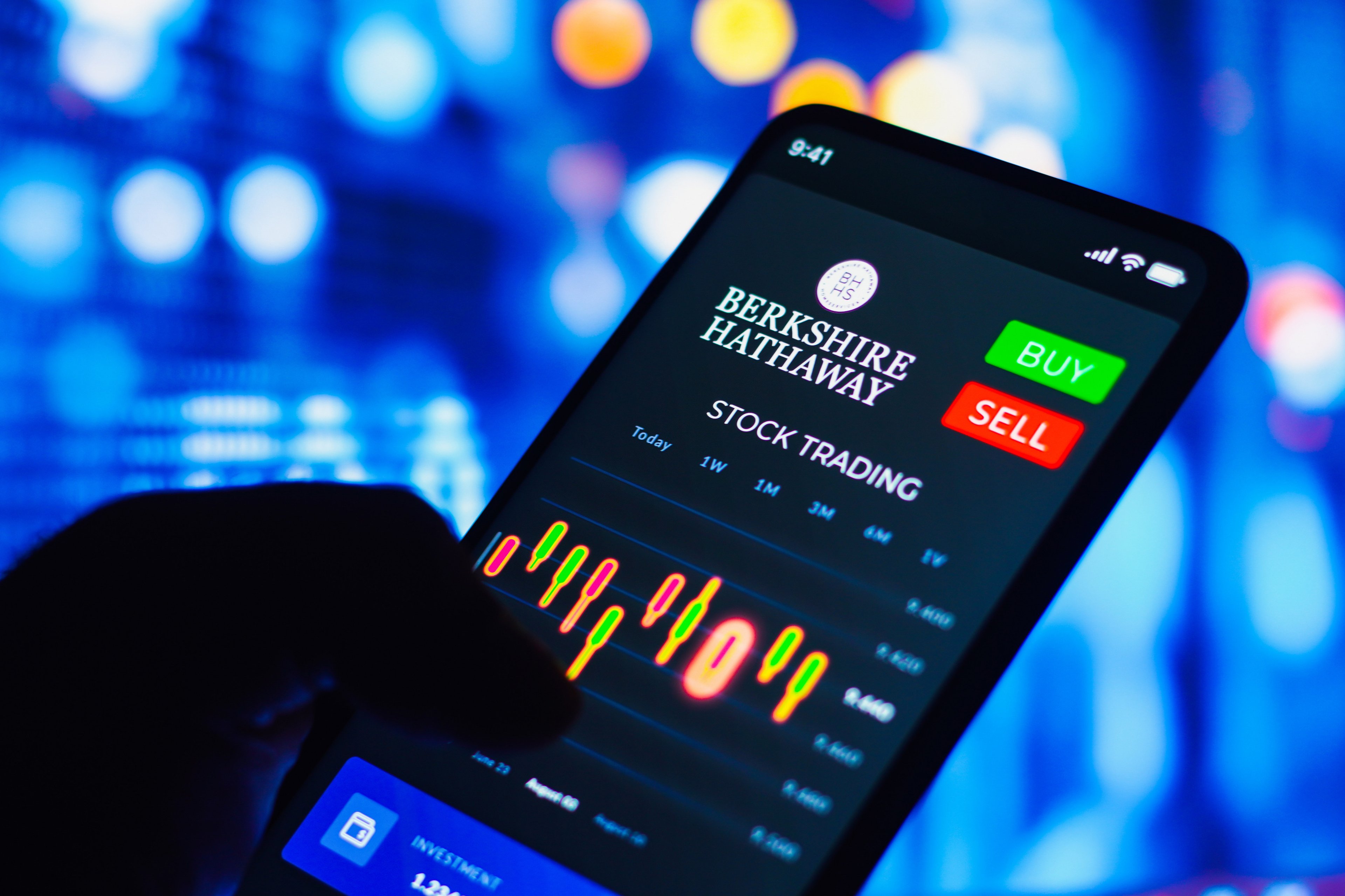Living investing legend Warren Buffett will formally ease into retirement at the end of the year when he steps down as CEO of Berkshire Hathaway (BRK.A 0.49%)(BRK.B 0.25%).
His legacy will continue through the conglomerate he has led for six decades and turned into a wealth-building force of nature. The stock price has compounded at an annualized rate of 19.9% from 1965 to 2024, giving it a total return exceeding 5,500,000%. That would have turned an initial investment of just $100 back in 1965 into $5.5 million, so it's safe to say that Berkshire has been a millionaire-maker stock.
But what might the future hold for long-term investors looking to add Berkshire Hathaway to their portfolios today? Can the stock still help make you a millionaire?

Image source: The Motley Fool
Why Berkshire Hathaway may struggle to repeat its past successes
The largest obstacle to Berkshire Hathaway continuing to mint new millionaires is its own success. The company has a market cap just north of $1 trillion today, making it the world's 10th-most-valuable company.
Berkshire Hathaway is a holding company with multiple operating subsidiaries in industries that span insurance, railroads, energy, utilities, manufacturing, and more. Additionally, it has a diversified stock portfolio worth approximately $300 billion, plus another $340 billion in cash and equivalents on its balance sheet.
In other words, Berkshire consists of many smaller pieces that add up to make one massive parent company. So to grow Berkshire Hathaway's value from its current level to the extent that it could make someone a millionaire -- multiplying its market cap by at least four or five times -- the company will need to hit some home runs. For example, it could make another massively successful investment like its Apple stake was, or it might acquire some high-growth businesses.
But even for the best investing professionals, spotting such opportunities isn't easy, and even if Berkshire does so and boosts its market valuation by a factor of five over the next 15 to 25 years, that would still be nowhere near the types of returns the stock has historically delivered. Simply put, Berkshire Hathaway is a legendary success story, but it's likely too big to produce such rapid growth anymore.

NYSE: BRK.B
Key Data Points
Expect changes in how Berkshire Hathaway operates
One way Berkshire Hathaway may be able to create additional shareholder value would be to deploy some of that $340 billion in cash it has amassed. Berkshire Hathaway doesn't pay dividends and does buy back its own stock, but it's careful about when it does so. Buffett is famously focused on valuations, so he only repurchases shares when he thinks they are trading below their intrinsic value.
Could Berkshire Hathaway initiate a dividend once Buffett steps down? He will remain chairman of the board, but perhaps he will relinquish such decisions to Abel. Dividends can boost investors' returns, and shareholders can reinvest them to buy more shares and generate more dividend income.
But the more cash Berkshire Hathaway sends out the door, the less capital it has to invest in acquisitions and investments to grow the business. It's a delicate balance that may fall on the new CEO to strike. I suspect that Berkshire Hathaway may initiate a dividend. Still, if it does, its payout might be modest, presuming that Abel will want to avoid immediately diverging too far from the management philosophy that made the conglomerate what it is today.
What does the future hold for Berkshire Hathaway?
Never say never, but the reality is that the odds are against Berkshire Hathaway stock single-handedly turning any reasonable sum of money into a million dollars anytime soon.
Not only has the company reached a size that somewhat inhibits its capacity for further growth, but Abel still has to show how well he'll fill Buffett's shoes. Certainly, Abel will have some big decisions to make about what to do with Berkshire Hathaway's massive cash hoard, and those decisions will likely impact how the stock performs over the next five to 10 years.
What investors can expect is for Berkshire Hathaway to excel. It can easily sustain steady growth for years with its sprawling empire of business assets that touch almost every corner of the economy, so the stock could certainly be a pillar within a retail investor's diversified portfolio.






